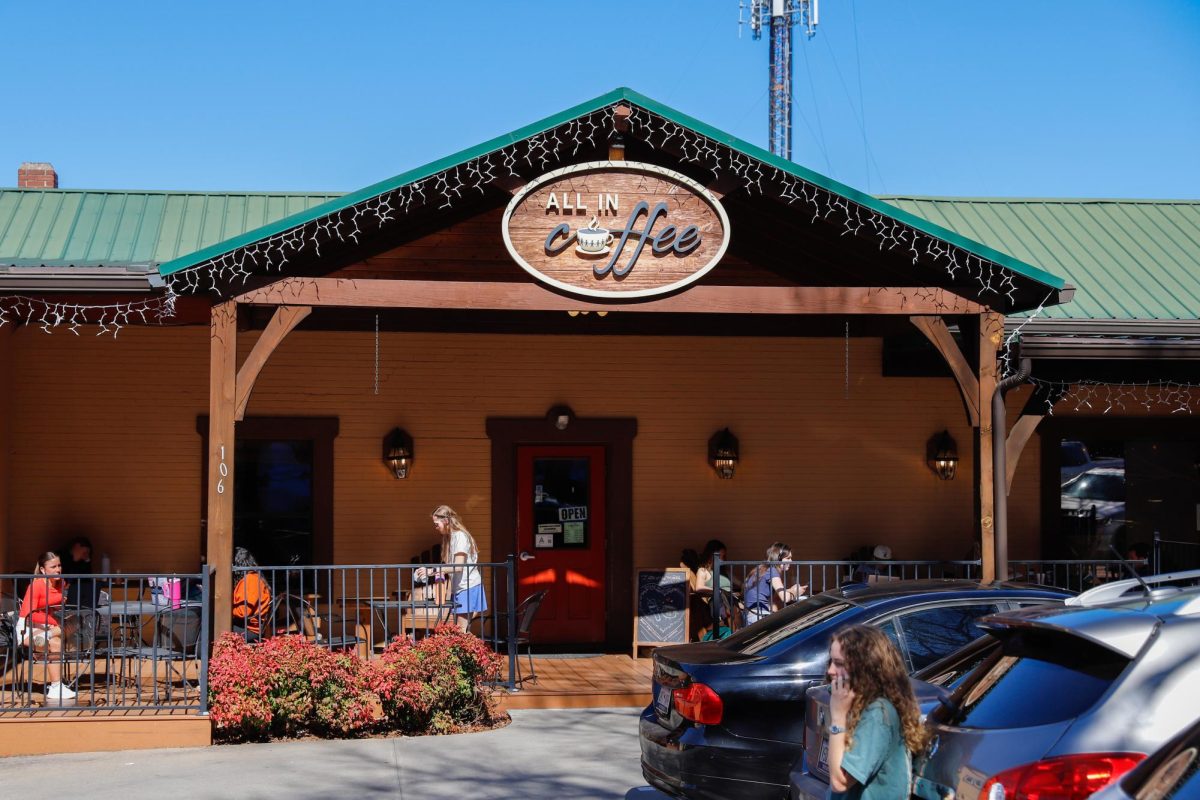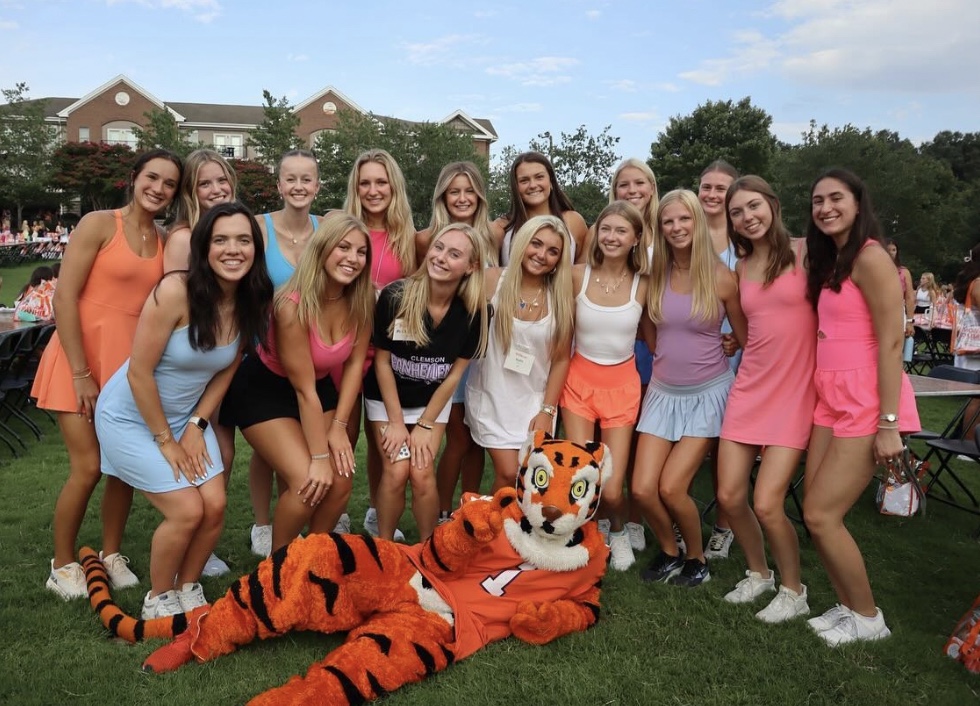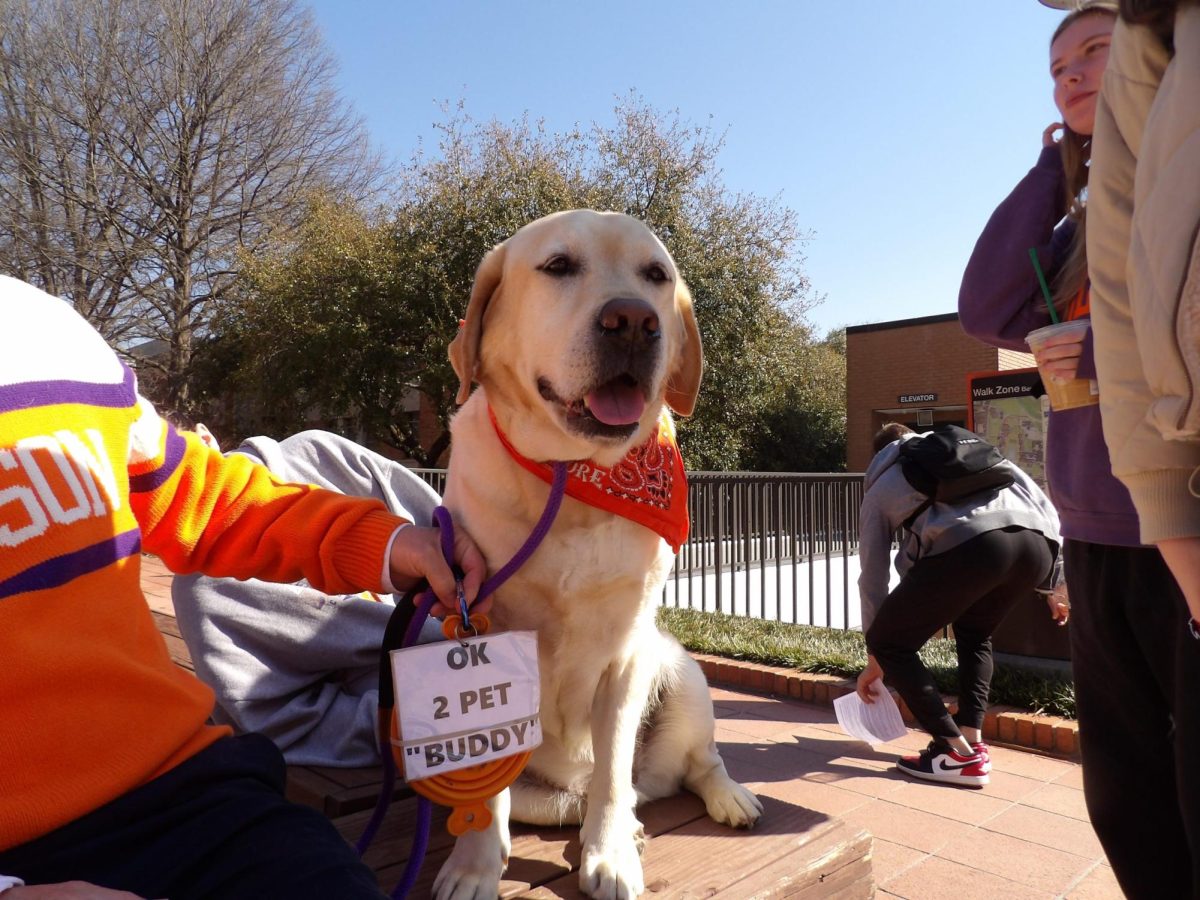Studies show that most college students want to live green, sustainable lives, but they don’t know how to do so. Helping them bridge that “sustainability gap” is the core idea that powers Solid Green, a campus organization committed to helping students live lives that are in tune with their environmental ideals.
The Project Green Challenge, one of Solid Green’s biggest efforts at Clemson, will take place across the entire month of October. This 30-day challenge will offer a different activity each day pertaining to sustainability. Students who complete the activities — which tend to be educational and include watching videos and filling out questionnaires — can submit them to Turning Green, an international organization that helps college students lead more sustainable lives, for the opportunity to win prizes. At the end of the 30 days, whoever has the most prizes will be entered into a bigger drawing for the opportunity to attend the four day Natural Products Expo West in Anaheim, California cost-free.
“[These are] simple changes you can make in your life to be more sustainable,” Solid Green Club president Emmaline Spier Camposano said. The 30-day challenge is part of the group’s larger mission to help students go from a “conventional to a conscious lifestyle” by “making simple changes to be more sustainable.”
The Project Green Challenge is one of the most ambitious programs taken on by Solid Green, which, Camposano said, began as a campus anti-littering initiative in 2009.
“From there [it] has evolved to encompass all the pillars of sustainability — environmental, social and economic sustainability,” she said.
The organization now has a wide range of goals, according to its website. These include to “raise awareness of littering on campus, recycling, energy and water conservation and other environmental issues; to promote clean-up activities and other events; and to support student groups that promote environmental awareness.”
Camposano said the biggest challenge for Solid Green right now is education. Several studies have found that millennials say they are environmentally attuned — a 2014 poll commissioned by Microsoft and the Clinton Global Initiative found that 74 percent of millennials considered the environment a top issue while only 24 percent of their parents’ generation did. A 2013 study by Shelton Group, an energy and environment research firm, found that while millennials may be “attitudinally green,” many do not back that up with action.
Camposano said Solid Green is trying to change that by showing students that “there is not just one way to live” and that “they have so many options if they are concerned about the planet.”
Faculty members are also involved, Camposano said, serving as a major driving force in much of the “behind the scenes” work for Solid Green. They collaborate to “figure out how to implement sustainability more cohesively on campus,” she said. Faculty members were behind the major push to change from coal energy to electric and gas energy, and Clemson is also planning to replace all of the fluorescent light bulbs in the Cooper Library with LED bulbs.
The faculty’s support has also been key to Clemson’s recycling efforts as they have pushed to make recycling bins readily available in the dorms, at the library and at football games.
“I am so excited that Solid Green is making such a huge presence at football games,” McKenzie Semrau, an intern for Solid Green, said. “We are handing out blue recycling bags to tailgaters, tabling and giving away fun prizes and encouraging fans to help us reach our zero waste goal.”
Although feedback has been positive overall, some of Solid Green’s efforts towards more sustainable living have received backlash. A push to put locally grown food from the Student Organic Farm in the dining halls has been rebuffed by Aramark, Clemson’s food services provider. Camposano said they wouldn’t accept her request because it was “too expensive” and “may not be up to their code.”
Living a more environmentally friendly and sustainable lifestyle can look different for everyone. When asked about why what Solid Green does is so important, Camposano said, “you have so many ways that can contribute to the greater good of preserving the planet’s natural way of order [and] people just have no idea.”
Students can sign up for Project Green Challenge on Wednesday, Sept. 20 at Bryan Mall from 10 a.m. – 3 p.m. It is free to sign up and Solid Green will be doing free giveaways from their sponsors. Other events to look forward to include Solid Green Day on Oct. 11 and Earth Day on April 22.
To learn more about the Solid Green Club and get involved, email Emmaline Spier Camposano at [email protected].
Categories:
Turning Clemson green: Community comes together to create a sustainable campus
Annabel Zane, Contributor
September 18, 2017
0
Donate to The Tiger
Your donation will support the student journalists of Clemson University. Your contribution will allow us to purchase equipment and cover our annual website hosting costs.
More to Discover







